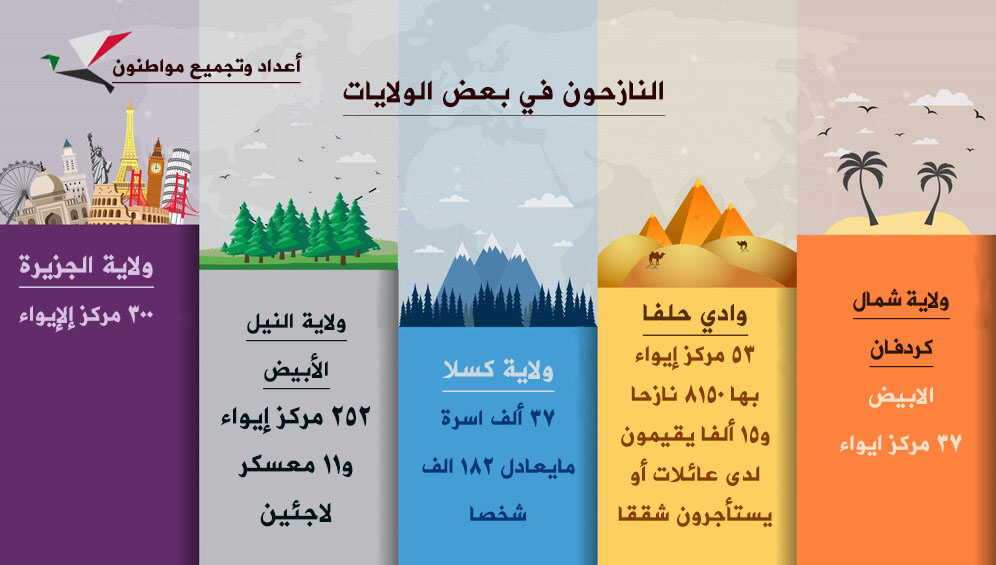
Tragic Conditions for Displaced People in Shelters
Mashaer Idris
Thousands of displaced people in shelters in Sudanese states continue to suffer from tragic conditions, including a severe shortage of drinking water, overcrowding in shelter rooms, a decline in the environment, and a lack of significant assistance from the government.
After six months of fighting in Sudan, about 24.7 million Sudanese (half of the population) are in need of humanitarian aid and protection, as the conflict, displacement, and spread of diseases threaten to overwhelm the country, especially after 70% of medical facilities have been shut down due to the war.
Ikhlash Hamd, supervisor of the Outstanding Shelter Center in Dongola, Northern State, said that the number of displaced people in the city has reached about 366 people, including 76 women, 47 men, 53 young men, 54 young women, and 95 children.
The supervisor complained about real problems faced by the center, including the sewage system of the bathrooms and the accumulation of dirt due to the long periods of garbage trucks not coming to the center. She feared the spread of epidemics due to the high density of mosquitoes and the deteriorating environment in light of the deteriorating health conditions in the country.
She pointed out that aid is provided by national organizations and charitable individuals who provide treatment and food for these displaced people.
Meanwhile, one of the volunteers at the Nazir Shelter Center in Gadarif State, east of the country, Hawa Osman, revealed the presence of 38 families, including 172 people, in one center.
She complained about the overcrowding of the shelter rooms, where one room houses 21 people, while malaria is spreading among the displaced people in the center, along with a lack of medical care.
She confirmed that everyone inside the center is responsible for treatment and food without any support, stressing that the state government has not provided them with any assistance since last June.
She added, The International Organization for Migration provided, on Friday, covers, ground mattresses, tarpaulins, mosquito nets, and empty bottles for drinking water.
One of the supervisors of the Kravis Center in Gadarif State said, The number of families residing in the center is about 46 families with a total of 204 people. He reported four cases of dengue fever in the center, including one critical case.
He pointed out that the center has only two bathrooms, although a large number of displaced people live in rooms with 20 people per room, while the Gadarif municipality has not fulfilled its obligations to provide treatment and food to the shelters.
Meanwhile, one of the displaced women in the Jili Salah Shelter in Madani, Gezira State, central Sudan, complained about the lack of health and environmental care, which could lead to the emergence of epidemic diseases in the center.
She said that the number of families inside the center is 82 families, including 301 people, who live in crowded halls, where about 20 people live in one hall.
Clementine Salami, the United Nations Coordinator for Humanitarian Affairs in Sudan, told the Human Rights Council in Geneva earlier that heavy rains and floods affected 70,000 people in seven states in Sudan, increasing the risks of more water-borne diseases spreading, and confirmed the outbreak of cholera in Gadarif State, with an investigation underway regarding its spread in Khartoum and South Kordofan.
The number of people fleeing the war has reached 5.4 million, including 4.3 million internally displaced people living in thousands of temporary centers, where they struggle to get food, drinking water, and healthcare.
The fighting between the army and the Rapid Support Forces since April 15 has exacerbated the health situation, with most hospitals going out of service after being occupied by the Rapid Support Forces, and most pharmacies and drug companies being looted and vandalized. Additionally, large numbers of citizens have been displaced to safe states or outside the country.

